
Main Page
Film Festivals
|
Ahed's Knee 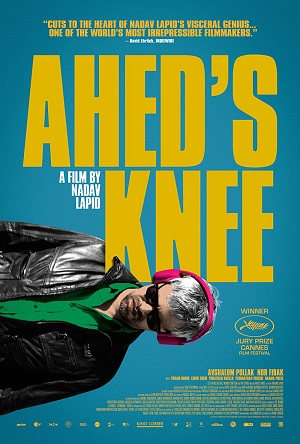 Y (Avshalom Pollak), an Israeli filmmaker, is in the process of casting an actress for his new movie, "The Knee of Ahed Tamimi." Meanwhile, he travels to a small, isolated town in the Arava Desert to screen his previous film at the public library. Yahalom (Nur Fibak), who represents the Ministry of Culture, greets him and tries to persuade him to sign a form that states which topics he's allowed to talk about at the Q&A. He wouldn't be able to talk about anything that criticizes Israel or the Israeli government. Refusing to be censored, he confronts Yahalom and argues with her. Ahed's Knee remains provocative even though the screenplay writer/director Nadav Lapid suffers from on-the-nose dialogue that tackles its political head-on. Y is cut from the same cloth as Howard Beale from Network. When he first meets Yahalom, she seems unctuous as she tries to charm him with her smile and flirtations, but he soon realizes that she has a hidden motive to get him to sign the form that would censor and dehumanize him. Upon discovering her true intentions, he's mad as hell and not going to take it anymore. What does he do with that rage? The answer won't be spoiled here, but Lapid does take the film into territory that makes Y slightly more like D-Fens from Falling Down because of the lines that he crosses to defend his freedom. Y is like a volcano waiting to erupt. How he confronts Yahaholom in the third act is shocking, as it should be, but it does go a bit over-the-top with a long rant that overstays its welcome and beats both Yahalom and the audience over the head with the words. However, Y does make interesting points and has a lot to say that provides some food for thought for critical thinkers, but the way that he expresses those thoughts and feels makes him seem like he's emotionally unstable. Does he think that yelling makes him more right than if he were to speak in a more quiet voice? .Lapid doesn't judge him, though, nor does he ask the audience to judge him. Like any human being, he has likable and unlikable qualities. So does Yahalom who appears happy and confident, but she's just as vulnerable and sensitive---and human--as Y. Avshalom Pollack gives a bravura performance as Y. He manages to capture Y's innate anger, frustrations and, most importantly, his emotional pain with conviction. Nur Fibak is also superb as she tackles a role that becomes increasingly complex. Y and Yahalom are different on the surface, but beneath the surface they have a lot of pent-up emotions. It's interesting to observe how both of them confront harsh truths. If you can imagine Mass with a lot more shouting and condescending tones, you'll get an idea of what it's like to watch Ahed's Knee. It's an agressive film--even the cinematography is quite aggressive and in-your-face with lots of close-ups and nauseating shaky cam. There's already plenty of tension within the narrative itself, so why the need for shaky cam? It feels as though the film were shot during an earthquake at times. The soundtrack is equally overbearing occasionally. The cinematography is indeed stylish, but that particular style gets in the way of the film's substance. At a running time of 1 hour and 49 minutes, Ahed's Knee is provocative, bold and searing, but often heavy-handed, on-the-nose and nauseating.
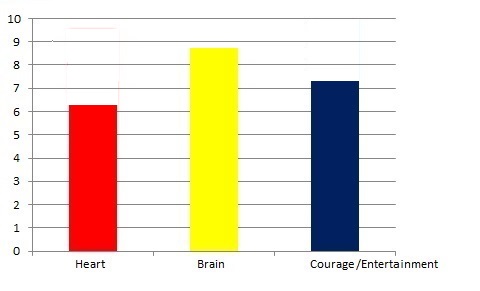 Benedetta 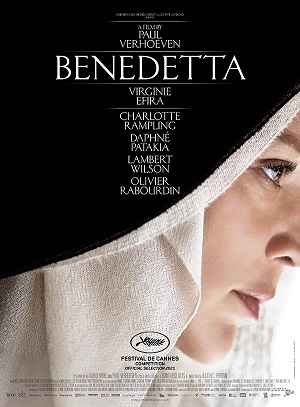 Benedetta (Virginie Efira) has lived in a convent in Pescia, Italy ever since she was a child when a statue of the Virgin Mary fell on top of her there. She suffers from erotic visions of Jesus and engages in a lesbian romance with a fellow nun, Bartolomea (Daphné Patakia). The abbess, Sister Felicita (Charlotte Rampling), witnesses them having sex with each other, so Benedetta now has to stand trial for her sins. Alfonso Giglioli (Lambert Wilson) presides as the judge. Set during the 17th century, the screenplay by writer/director Paul Verheoven and co-writer David Birke, based on the book Immodest Acts: The Life of a Lesbian Nun in Renaissance Italy by Judith C. Browne, begins with a prologue showing Benedetta as a child (Elena Plonka) when he father first brings her to the convent. What follows is a wildly entertaining experience that becomes increasingly outrageous while being unafraid to push the envelope. Verheoven and Birke leave very little to the imagination. Fortunately, Benedetta is more than just a movie about lesbian nuns. While that aspect of the film might be part of its hook, there's a lot going on plot-wise that turns it into a provocative and surprisingly moving story. Its goal isn't just to shock, although it does that with a few scenes that won't be spoiled here. The campy, wickedly funny scenes blend well with the more serious ones. With a less sensitive screenplay, those two contrasting tones would have led to unevenness and clunkiness like watching two different films. Benedetta knows just when to take itself seriously and when not to because the filmmakers don't go too over-the-top in either direction. It might seem like it's a mindless B-movie, but it's much more of a movie that walks a fine line between brilliance and madness, a line that's no easy feat to walk on. Moreover, Benedetta feels like a fully-fleshed, complex human being with a heart, mind and soul. What helps to keep somewhat Benedetta grounded is the superb cast. Casting is a huge part of a film's tone, after all. Virginie Efira provides some charisma in her role as Benedetta and handles the comedic aspects and more tender aspects of it convincingly. It's both an empowering and brave role for her, not for the nudity, which there's plenty of unflinchingly, but for the emotional nakedness that she displays every now and then. Charlotte Rampling adds depth to the film with her performance as Sister Felicita. She and Virginia Efira are the kind of actresses who can add emotional depth even when it's present in the screenplay which is the case here. The same can be said for Lambert Wilson. The cinematography is decent, although some of the visual effects aren't too impressive. Even though it's not outrageous enough to become a midnight cult classic, it comes close, and could still have somewhat of a cult following. At a running time of 2 hours and 11 minutes, Benedetta is an audacious amalgam of dark comedy, satire, religion, campiness, suspense and eroticism. 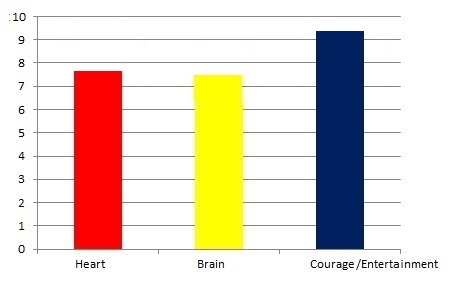 Bergman Island 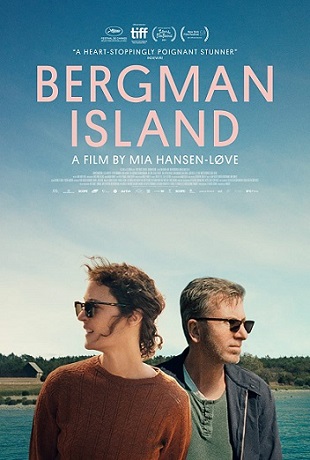 To describe Bergman Island's plot wouldn't do it justice because it's much more than about it's plot. Writer/director Mia Hansen-Løve provocatively explores the themes of marriage and art as well as the thin line between reality and fiction. Chris writes a film about a young woman, Amy (Mia Wasikowska), who travels to Fårö where she reunites with her long lost former love interest, Joseph (Anders Danielsen Lie). That film-within-the-film is fictional, yet the characters show up within Bergman Island. The screenplay feels natural and it's refreshing to just watch Chris and Tony doing something seemingly simple like walking and conversing with one another. The more they talk, the more you learn about the quality of their marriage as well as their different personalities. They become increasingly human and complex which makes them all the more interesting as characters. Much like an Eric Rohmer film, the dialogue is filled with perceptive insights which are quite thought-provoking. Hansen-Løve also makes great use of quiet moments which speak louder than words. Once the reality and fiction elements merge, the film becomes more intriguing without going over-the-top. Nuance and understandment are among the film's many strengths. Hansen-Løve should also be commended for trusting the audience's patience, intelligence and emotions. Patient audience members will be rewarded the most. If you're a fan of Eric Rohmer's cerebral and honest films about relationships, you'll easily find Bergman Island to be captivating and engrossing. One of characters in Bergman Island isn't human at all, yet it's among the important characters in the film because it becomes a form of poetry: the island of Fårö. An island represents isolation which could be what it represents as a metaphor. The surrounding sea also becomes a character which could represent freedom much like the sea in The 400 Blows. Another film combines the themes of filmmaking and relationships on an island: Jean-Luc Godard Contempt. Both films are very different in terms of plot and filmmaking style, but they both make great use of the setting to create atmosphere. It's also worth mentioning the leisurely pace that's refreshing and allows audiences to fully absorb each scene; there's no choppy editing or shaky cam to be found here, fortunately. Vicky Krieps is very well cast as Chris; she's a naturally talented actress who's just as mesmerizing here as she is in Phantom Thread. She also resonates warmth and charisma in her role. Chris and Tony seem like a married couple albeit an imperfect one. The way that their relationship evolves through the film is fascinating, moving and, much like the film itself, true-to-life. At a running time of 1 hour and 52 minutes, Bergman Island is provocative, honest and genuinely poignant with poetic imagery and shades of Eric Rohmer's cerebral films. 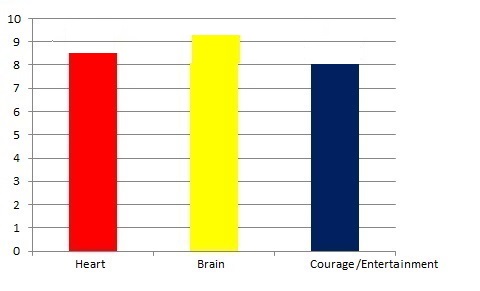 C'mon, C'mon 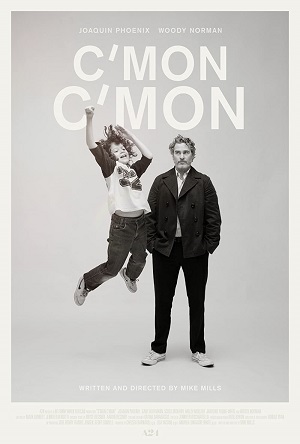 Johnny (Joaquin Phoenix) works as a radio journalist in Los Angeles. He agrees to travel all the way to New York City to take care of his 9-year-old nephew, Jesse (Woody Norman), while his sister, Viv (Gaby Hoffmann), has to spend time with her ailing husband, Paul (Scoot McNairy). To describe the plot of C'mon, C'mon wouldn't be fair not just because it has a thin plot, but because it's not really about its plot. The screenplay by writer/director Mike Mills is more about the relationship between Johnny and his nephew, Jessie, and how they affect each other throughout their adventures in New York. Even labeling it as a comedy or drama wouldn't do it any justice. It's fundamentally a slice-of-life with shades of A Thousand Clowns. Mills resorts to some cliches, like the fact that Jesse is a precocious child, but there's some truth to cliches and it's a cliche to complain about cliches anyway. Of course, there's a scene where Johnny briefly thinks that he lost Jesse for good in the city and wanders around looking for him. Of course, it's no surprise that he finds him and that the experience changes Johnny. C'mon, C'mon isn't really about big plot surprises, even though it does have a small surprise toward the end. Mills wisely grounds the film in the bond between Johnny and Jesse. It's equally fascinating and moving to watch how their relationship evolves. It feels natural which makes it all the more engrossing on an emotional and human level. Fortunately, Mills avoids schmaltz and melodrama, and the profound moments that include some aphorisms don't feel preachy. He mixes some documentary footage of kids talking to the camera that Johnny points at which blurs the line between reality and fiction. Mills should be commended for trusting the audience's patience. To be fair, C'mon, C'mon takes a little time for its narrative momentum to get going, but once it sets up its exposition and Johnny starts spending time with Jesse, it takes off without taking a nosedive at any point like some films do. Unlike Kenneth Branagh who directed Belfast, Mills grasps the importance of understatement, subtlety, and that less is more. He doesn't hook the audience right away, but gradually, while letting the film grow on the audience, so he doesn't try too hard to please the audience like Branagh does in Belfast. C'mon, C'mon uses black-and-white cinematography like Belfast without relying on style overshadowing other essential elements like emotions. In other words, it offers both style and substance, and its style sometimes becomes part of its substance. New York City becomes like a character in itself, much like in A Thousand Clowns. There are a number of breaktaking shots of the city that make it look poetic, i.e. the scenes in Central Park. Mills is also unafraid to dig deeper and delve into the darker themes which rise to the surface later on. Jesse goes through an emotional and psychological journey, but so does Johnny. In a way, Johnny behaves like a child because he has a lot of growing up to do. By the end of the film, he's changed somewhat or at least there's some hope for him to change since he does show signs of emotional maturity. That makes both him and Jesse interesting characters and all the more human. Joaquin Phoenix gives a raw, emotionally resonating and nuanced performance. It's refreshing to see him in a role that doesn't require him to go over-the-top in any way. He also does a great job of showing Johnny's emotional pain beneath the surface. Woody Norman gives a breakthrough performance. He's charismatic, radiant and has great chemistry with Joaquin Phoenix. At a running time of 1 hour and 48 minutes, C'mon, C'mon is a heartfelt, wise and profound emotional journey. It's just the right antidote to the cloying and pandering Belfast.
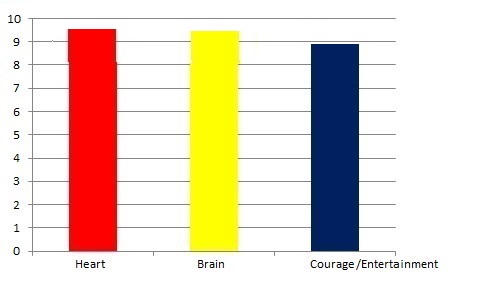 Drive My Car 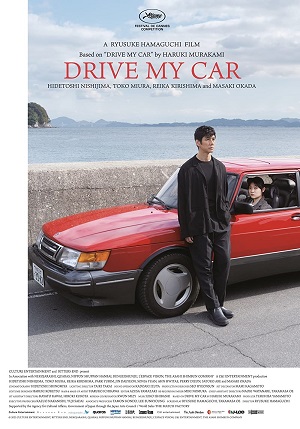 Yusuke Kafuku (Hidetoshi Nishijima), a theater actor and director, catches his wife, Oto (Reika Kirishima), having sex with a younger man. Soon after, she dies, and he learns that he's losing his eyesight in one eye which impairs his vision. He casts a young actor, Takatsuki (Masaki Okada), in a play Uncle Vanya that he's directing. Takatsuki happens to be the same young man whom he caught Oto cheating with. When the theater company learns of his poor eyesight, they require Yusuke to have a chauffeur, Misaki (Toko Miura), drive him to and from work. The screenplay by writer/director Ryûsuke Hamaguchi and co-writer Takamasa Oe takes its time to develop its narrative and the themes about memory, emotional pain and regret. Yusuke doesn't seem like an interesting character at first, but that's only because he's not very introspective and candid initially. His chauffeur, Misaki, awakens something in him as though he were an iceberg being thawed out gradually. The more time they spend together, the more she gets to know him and the more the audience gets to know him concurrently. Eventually, you also get to know Misaki as she opens up to him as well. In a way, it's inevitable that two people in a car would eventually connect, so that part of the film isn't surprising. What's surprising is how deeply human the relationship between the two of them feels without them actually having a romance with one another. She becomes like a therapist, a friend and a mother to him all at once despite the fact that she's younger than him. She seems more emotionally mature than him, ironically, but, without revealing any spoilers, she has her own traumatic events from her past to deal with. It's fascinating and engrossing to observe the evolving dynamics between them, and what happens when Tusuke confronts Takatsuku, his deceased wife's lover. Hamaguchi avoids contrivance or any big Hollywood moments of drama. There are no car chases or gun fights; just human beings interacting. Just like with Happy Hour and Wheel of Fortune and Fantasy Hamaguchi proves that he grasps human nature and has a natural ear for the way that people talk. There's no stilted dialogue or overexplaining. Even the exposition feels organic. There are also a few brief moments of comic relief, but for the most part, he's unafraid to delve into the darker side of humanity and to explore tough human emotions. In a way, there's even another character who's there for the ride, but not on-screen: the audience. Hamaguchi makes you feel as though you're a voyeur observing two human being bonding and, eventually, sharing intimate thoughts and feelings with each other. As Yusuku and Misaki gradually pull the curtain displaying their humanity and unmasking their true selves with emotional nakedness and introspection, the audience is compelled to do the same and to project. Drive My Car is essentially an emotionally mature film that rewards emotionally mature, introspective audience members. Drive My Car will also reward patient audiences. Hamaguchi clearly trusts the audience's patience as he moves the film at a slow, leisurely pace with moments of quiet every now and then. Some of the driving scenes, and there's plenty of them, can be seen as a travelogue of sorts, so even if you might think you'll be bored by them, you'll have scenery to take in and enjoy. The running time of 2 hour and 59 minutes sounds excessive, but once you're used to the film's refreshingly unhurried pace and immerse yourself in the lives of its characters, you won't feel the weight of the running time that much. The performances are all natural without over-acting or under-acting which adds to the film's sense of realism and emotional depth that's also present in the screenplay. Drive My Car is a meditative, profound and engrossing journey. 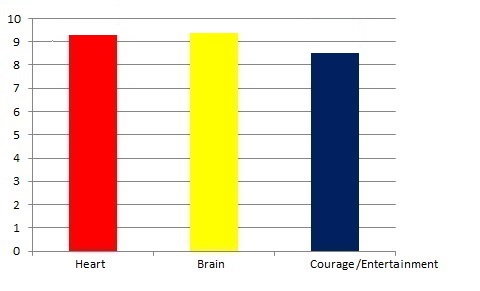 Dune: Part One  In the year 10191 on the planet of Arrakis, the Harkonnen harvest a unique spice used for travelling between stars. Duke Leto (Oscar Isaac) lives on the planet of Caladan with his concubine, Lady Jessica (Rebecca Ferguson) and son, Paul Atreides (Timothée Chalamet). They travel to Arrakis so that Duke Leto can take control over the mining operations of the spice, but the nefarious Baron Vladimir Harkonnen (Stellan Skarsgård) poses a threat to him and his family. Based on the novel by Frank Herbert, Dune: Part One is essentially one long setup for Part Two with very little payoff. The screenplay by Jon Spaihts, Eric Roth and writer/director Denis Villeneuve takes a while to introduce all of the characters, some of them more briefly than others, and to explain motivations. Paul has special powers that allow him to see into the future. He has visions of Chani (Zendaya). His mother encourages him to hone his mind control skills despite the disapproval of Reverend Mother Mohiam (Charlotte Rampling). There are simply too many characters and lots of exposition, much of which feels dry with too little comic relief or wit. It's also anticlimactic more often than not. The film seems like it's merely going through the motions without adding much depth or delving into the mind of its characters, especially Paul who remains at a cold distance from the audience. That makes it hard to root for him or to care about him. There's not enough of a window into his heart, mind and soul despite a few scenes attempting to be poignant, but result in clunkiness and unneveness. Dune: Part One works best as a spectacle of sight and sounds with great makeup design by the talented Donald Mowat. Everything from the sound design to the cinematography and music score add plenty of style and even a little substance. Seeing it all on the big screen, especially in IMAX, would be ideal. It's too bad, though, that the film doesn't quite match the exhilaration of The Lord of the Rings. Even the first film in that series felt thrilling and gripping, not just breathtaking on an aesthetic level. Dune: Part One tries hard to please the audience on a shallow level and occasionally succeeds with some awe-inspiring scenes, but for the most part, it comes with diminishing returns. A truly great film should have a perfect blend of Truth and Spectacle, as Francois Truffaut once wisely observed. The Lord of the Rings manages to have both as it found Truth within all of the Spectacle. Dune: Part One has too much Spectacle and not nearly enough Truth, on the other hand. Timothée Chalamet, Rebecca Furgison and Oscar Isaac try their best to add a little emotional depth, but they're still undermined by the shallow screenplay. Sometimes Spectacle alone can be a lot of fun, but that's not the case here. Too many scenes drag, especially after the 90-minute mark. At a running time of 2 hour and 35 minutes, Dune: Part One is a visually stunning, well-produced Spectacle, but it's overlong, anticlimactic and often dull. 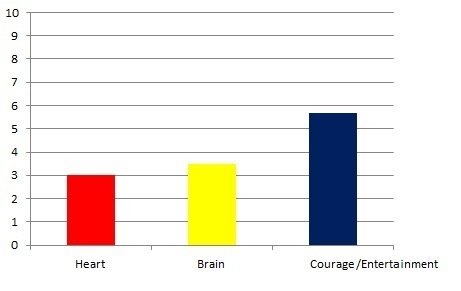 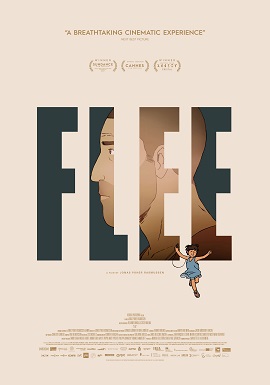
Flee is one of the most moving and cinematic documentaries of the year. Director Jonas Poher Rasmussen interviews a gay man living in Denmark who recalls how he and his family fled Afghanistan in the 1990s when he was a teenager and still in the closet. The man, Amin, whose real name is kept anonymous to protect his identity, has never told his harrowing story except to an ex-lover. He explains in detail the journey that he took and what obstacles he encountered along the way as he ended up separated from his family. He's very brave not only for putting his life at risk by fleeing, but also for talking about those traumatic events so candidly and vividly. Not all of them are traumatic; there are some heartwarming moments, i.e. what happened after Amin came out to his father. Director Jonas Poher Rasmussen puts him at ease from the very beginning by having him lay down and making sure that he's comfortable. Amin's story itself is thrilling, riveting and even terrifying at times, but what's even more potent and emotionally resonant is the emotional journey that he goes through. Flee could've turned into a conventional talking-heads documentary if it weren't for its visual style. Instead, Rasmussen uses animation to show the interview with Amin and the flashbacks to his past. There's some actual documentary footage shown, but it's archival and serves as a reminder that the film you're watching is non-fiction even though it's animated. The animation looks great without going over-the-top in style. What's important, ultimately, are Amin's words, his memories and the feelings that those memories conjure. Prepare yourself for an emotionally gripping rollercoaster ride that's filled with hope, despair, perseverance, thrills, drama and even a little romance. All of those elements could have turned into an uneven, overstuffed mess with a less skilled director. Fortunately, Rasmussen combines it all into a documentary that feels equally captivating and cinematic. Flee is one of the best documentaries and animated films of the year. It's a spellbinding, poignant and heartfelt emotional journey with just the right blend of style and substance. It opens in select theaters on December 3rd, 2021 via NEON. The French Dispatch 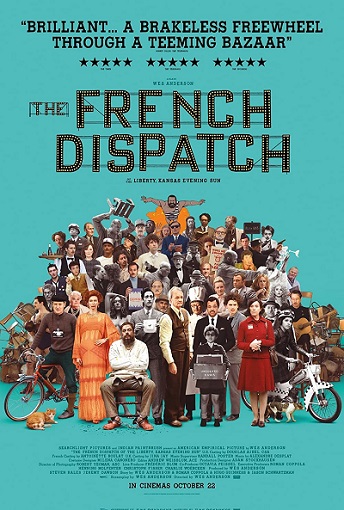 Journalists from The French Dispatch, a Kansas magazine based in Ennui-sur-Blasé, France, write four short stories to commemorate their editor, Arthur Howitzer, Jr. (Bill Murray), who died. The magazine's staff include Herbsaint Sazerac (Owen Wilson), J.K.L. Berensen (Tilda Swinton), Lucinda Krementz (Frances McDormand), and Roebuck Wright (Jeffrey Wright), among others like the cartoonist (Jason Schwartzman) and copy editor (copy editor (Elisabeth Moss). The French Dispatch is essentially an anthology of four short stories with a wrap-around story involving the death of a beloved magazine editor. In the first story, a painter, Moses Rosenthaler (Benicio Del Toro), incarcerated in an asylum paints a prison guard, Simone (Léa Seydoux) nude and soon gets an offer from an art dealer, Julien Cadazio (Adrien Brody) for his paintings. In the next story, a student, Zeffirelli B. (Timothée Chalamet), sleeps with an older woman, Lucinda (Frances McDormand) who helps him to write a manifesto. In the third story, a TV host, Liev Schreiber, interviews Roebuck Wright about an article he wrote about Lieutenant Nescaffier (Stephen Park), the personal chef of a police commissioner (Mathieu Amalric). In the final vignette, The French Dispatch's staff gather to write an obituary for their editor. None of the stories stands out per se, but they're each certainly very different. The third story is the most dull and convoluted one among all of them. Writer/director Wes Anderson bombards the audience with too many characters none of whom are memorable. Did I mention that Willem Dafoe, Bob Balaban and Lois Smith are also in the film? Angelica Houston provides the voice-over narration. Despite so many actors and four vignettes, there's very little depth, warmth, wit or laughs for that matter. Wes Anderson tries too hard to please the audience, but doesn't quite succeed this time around. There's plenty of Wes Anderson's trademark whimsy, though, but it's not nearly as refreshing as it felt in Rushmore or The Royal Tenenbaums. When it comes to cinematography, set design and costume design, The French Dispatch excels which is what you would expect from a Wes Anderson film. He plays around with aspect ratios and black-and-white cinematography that adds plenty of visual style. Stylish visuals can only go so far, though. What about entertainment? Emotional depth? Insights? Perhaps The French Dispatch would work better as a movie to study in film school scene-by-scene rather than with an audience at a movie theater. At a running time of 1 hour and 48 minutes, it's too bad that The French Dispatch is ultimately less than the sum of its parts. 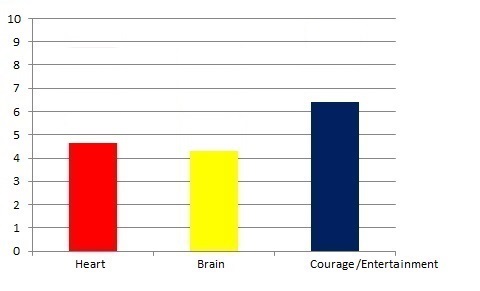 Hit the Road 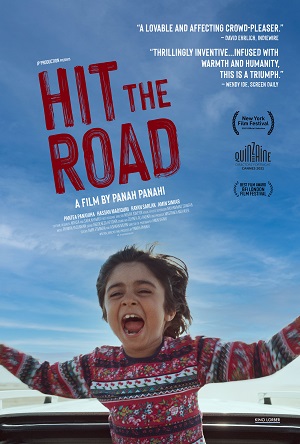 A family embarks on a road trip through Iran. The father (Hassan Madjooni) because he has a broken leg, so his older son (Amin Simiar) drives instead. His younger son (Rayan Sarlak) and wife (Pantea Panahiha) also join them for the ride along with their injured dog. Hit the Road is far from a conventional road trip comedy. Even to call it a comedy wouldn't really be completely accurate. The screenplay by writer/director Panah Panahi has a wafer-thin plot and keeps everything lean without any subplots or unnecessary exposition. As Roger Ebert once wisely observed, a plot, after all, isn't as important as how a film goes about its plot. The emotions that Panahi contains within the minimalist plot is what makes the film extraordinary. The characters are all nameless, but they feel more true-to-life than characters in Hollywood films that do have names. None of them come across as caricatures. They each have their own flaws which gradually rise to the surface, but what humanizes them even more is their different personalities. Fortunately, the dialogue sounds natural enough that you can believe that these people are a family. Their conversations are witty and amusing at times with some pop culture references to classic movies like 2001: A Space Odyssey. Some of the situations that the family goes through are quite funny, but Hit the Road doesn't try too hard to make the audience laugh or to push the envelope. The humor is human comedy and grounded in realism without resorting to the lowest common denominator, so those of you expecting poop or fart jokes will be disappointed. As Hit the Road progresses, it becomes increasingly engrossing, surprising and poignant without being schmaltzy or contrived. All of the actors in Hit the Road excel with their natural performances that help to further ground the film as a slice-of-life. Panahi avoids preachiness or anything that's heavihanded which is a testament to his restraint as a filmmaker. He does include some poetry both in terms of visuals and words, both of which are equally powerful. The last scene of the film, which won't be spoiled here, is breathtaking, tender and enormously moving. Its beauty and emotional resonance transcends words much the most of Hit the Road. Bravo to Panahi for seeing and treating these characters as human beings. At a brief running time of just 1 hour and 33 minutes, Hit the Road is a funny, genuinely heartfelt and captivating journey brimming with warmth, poetry and humanity. 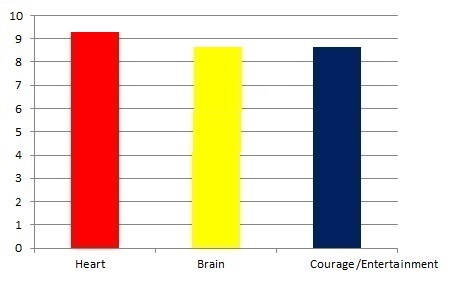 Il Buco 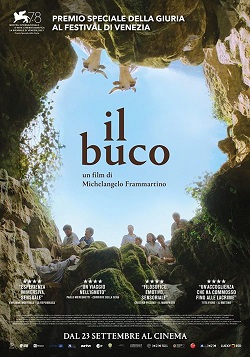 In 1960s Italy, a group of speleologists slowly descend Bifurto Abyss, a 700-foot cave that had not yet been explored. Meanwhile, an elderly, ailing man (Antonio Lanza), who works as a shepherd goes missing. Based on the true story of the 1961 exploration of Bifurto Abyss, the screenplay by writer/director Michelangelo Frammartino and co-writer Giovanna Giuliani eschew conventionality by eschewing a complex plot, characters and even dialogue. They trust the audience's intelligence to decipher the meaning of what they're watching and to connect, on their own, the story of the shepherd with the experiences of the speleologists. None of the people onscreen are named. There are no backstories, narration, or exposition. The only expositional text comes at the very end before the end credits roll. There's a lot going on if you're paying attention and are willing to absorb sights and sounds. It's a truly immersive experience that's hard to put into words. Words aren't really necessary in a quiet, meditative film like this. Part of what makes it even more engrossing is that it feels like a documentary without any scenes that would make you think that you're watching actors. The filmmakers capture an authenticity that makes for an occasionally exhilarating experience, especially the scenes of the cave exploration. They grasp the fact that there are many ways to communicate with the audience, not just through dialogue. The visuals alone in Il Buco are worth watching the film for. Frammartino finds poetry in the many breathtaking shots. He trusts the audience's patience which definitely will be a frustrating experience for those of you with a short attention span who prefer a fast pace. The pace moves slowly which feels very refreshing and relaxing. There are no big action scenes or huge twists, even though there is a subplot involving the elderly shepherd's disappearance. Frammartino's greatest strength, though, is his ability to take what sounds mundane and turn it into something rich and profound. Seemingly simple shots like of a soccer ball being kicked above the opening of the cave are among the most hauntingly beautiful moments. Yes, Il Buco requires a lot of patience, but patience is often rewarding which can be said about this film. It's also worth mentioning the terrific sound design that helps to make it even more immersive. If Il Buco were 3 hours long, it would've overstayed its welcome, but at a running time of 1 hour and 87 minutes, Frammertino shows restraint, another important strength of his. It's an awe-inspiring, transcendent, refreshing and visually poetic experience. Il Buco would be an interesting double feature with Cow, Hukkle, or Le Quattro Volte. 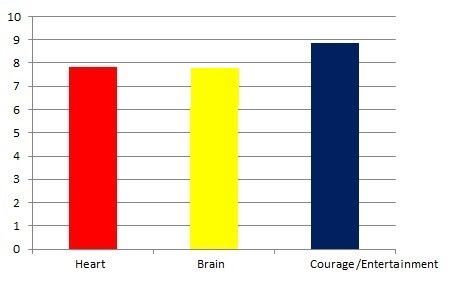 Întregalde 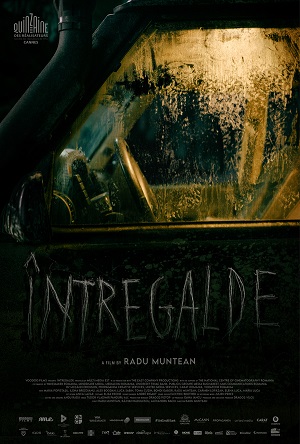 Maria (Maria Popistasu), Ilinca (Ilona Brezoianu) and Dan (Alex Bogdan) work as volunteers who deliver care packages to poor people in Romanian villages around the time of Christmas. As their SUV travels along a countryside road in the dead of winter, they cross paths with an old man, Kente (Luca Sabin), walking along the road and let him hitch a ride to a sawmill. Their car gets stuck in the mud, though, as nightfall approaches, and Kente ditches them to walk on his own to the sawmill. Întregalde has more surprises than horror films do, even though it's not a horror film per se. The screenplay by writer/director Radu Muntean, Razvan Radulescu and Alexandru Baciu plays around with the audience's imagination often while walking a fine line between drama, satire and psychological horror. If a car gets stuck in the mud in the middle of nowhere after the protagonists meet a mysterious stranger, it's easy to assume that it'll either become a thrilling, suspenseful tale about trying to survive the elements or a horror film. Întregalde does have suspense, but it's very understated. The same can be said about the horror elements which are only in the mind of the audience, especially during the nighttime scenes where you can barely see anything. What begins as a gently gripping film turns into a surprisingly moving experience about kindness, compassion and adversity. There's also some surprising moments of comic relief; this isn't a dry or pedestrian film at all. It has some wit and tongue-in-cheek humor up its sleeve. The fact that there's more to Kente than meets the eye makes for a film that's intriguing and refreshingly unpredictable. It's a concurrently fascinating and profound study of human nature, like the recent All My Friends Hate Me which also has a creepy old man who turns out to be not at all who or what you'd imagine he would be. The landscape in Întregalde becomes like a character in itself with the countryside and wintry settings adding plenty of atmosphere. Radu Muntean moves the film along at a slow, but not too slow pace, although it does take time to get used to it initially. Fortunately, he doesn't resort to shaky cam as a means of generating tension, and he trusts the audience's emotions as well as their patience. Most importantly, he trusts their imagination which is something rare these days. He avoids spoon-feeding them exposition. There are no big jump scares or any villains on screen, but some of the nighttime scenes are more palpably terrifying than many scenes in recent visceral horror films, i.e. X. The performances are natural which adds to the film's realism, and there's also no overbearing music that tells the audience how to feel. At a running time of 1 hour and 44 minutes, Întregalde is a slow-burning, unpredictable slice of psychological horror that's a lot more than just the sum of its parts.
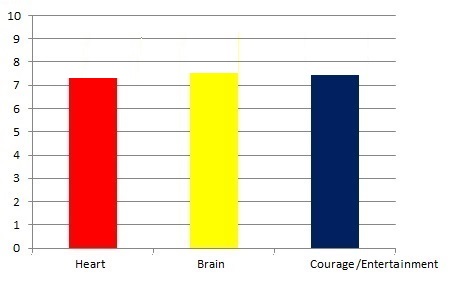 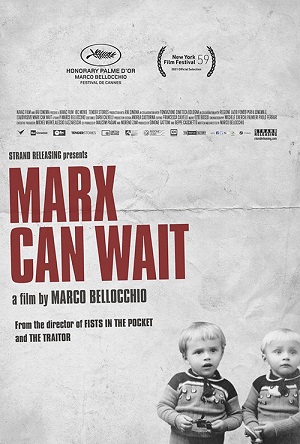
Directed by Marco Bellocchio himself, Marx Can Wait is a heartfelt, unflinching and profound reflection on the suicide of Marco's twin brother, Camillo, in 1968, and its aftermath. Bellocchio displays emotional maturity for being brave enough to examine his family's dark past head-on without any sugar-coating. Through interviews with his family members, including his siblings and in-laws, you get a sense of how Camillo's suicide affected his family throughout the years. You also get some background, expositional information of what Camillo's life was like fifty years ago, and the emotionaly pain that he suffered from after his father died which led to his suicide. The most heartbreaking part of the film is when his family recalls the moment that they found Camillio hanging in his room. Interestingly, one of Marco's siblings believes that it was an accident, not a suicide. She, like Marco, seems to be processing Camillio's death differently than Marco, and she has every right to. The most profound moment and revealing moment, though, is when Marco talks with his priest candidly about the guilt that he feels about his twin brother's death and that he wishes he could've loved him more. That shows Marco not only Marco's compassion, empathy and emotional generosity, but also that he's capable of being introspective. He sees his brother as well as himself as a human being. The fact that he expresses his remorse and guilt while being unafraid to show his vulnerability instead of suppressing it is a strength, not a weakness. It makes him all the more relatable, especially for anyone who's also dealing with trauma. Marco clearly grasps the wise concept that to learn and to heal from the past, you can't ignore or deny it. The poet Pablo Neruda once wrote, "They can cut all of the flowers, but they can't stop the spring from coming." Through this intimate, honest and poignant documentary, the garden of Marco Bellocchio's heart, mind and soul is cleansed and nourished to allow more flowers to grow, so-to-speak. Hopefully, it will inspire audiences to do the same if they're willing to be introspective and to see themselves as human beings, warts and all. At a running time of 1 hour and 35 minutes, Marx Can Wait opens on July 15th, 2022 at IFC Center via Strand Releasing. Neptune Frost 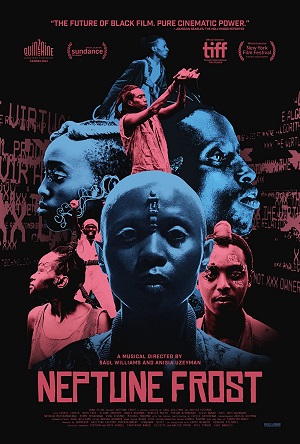 In a futuristic society, Neptune (Elvis Ngabo and Cheryl Isheja), an intersex hacker, falls in love with an escaped coltan miner, Matalusa (Bertrand Ninteretse), despite not meeting physically. Their love somehow threatens "The Authority" that Neptune rebels. With the help of Matalusa, they ignite an uprising against "The Authority." Neptune Frost is one of the most inspired sci-fi movies in quite a while, even surpassing Crimes of the Future in terms of how it takes its concept to thrilling and unexpected territory. The screenplay by writer/co-director Saul Williams blends sci-fi, social commentary, romance, technology, action and musical in a way that sounds like it could've turned out to be a campy, anarchic mess. There's a slight sense of anarchy because the film genre-bends, but no there's no sign of campiness or unevenness. To describe the plot of Neptune Frost wouldn't do it any justice because it's far more than the sum of its parts and has to be experienced. Admittedly, it takes a while to get used to the film's blend of so many genres and to its vibe, but around the 10-minute mark, it suddenly clicks and becomes an exhilarating experience. Williams uses plenty of metaphors without over-explaining them to the audience, so he and co-director Anisia Uzeyman trust the audience's intelligence while leaving enough room for interpretation. They keep exposition to a minimum, yet you still learn a lot about the futuristic society. Even though it takes place in the future, in some ways, it's similar to our modern world. These people are human beings who are standing up for their beliefs and yearn to be free. Their romance isn't a conventional one because they're so far apart. It doesn't make much sense at first and it's not a very emotionally engrossing romance for that matter. However, to be fair, Neptune Frost isn't really a love story. It's hard to categorize which makes it all the more unique and extraordinary. Pay close attention to the lyrics of the songs during the musical numbers because they're quite profound. On an aesthetic level, Neptune Frost is a triumph. The set design, lighting, camerawork, costume design and make-up design combine to create a dazzling spectacle that provides plenty of eye-candy. The musical numbers (with just singing, no dancing) add to the spectacle as well as to the film's substance. Fortunately, the visual style doesn't overpower its substance, so it has both style and substance equally, unlike Crimes of the Future which mostly has style and shock value. The performances are terrific and feel natural which helps to keep the film grounded. At a running time of 1 hour and 45 minutes, Neptune Frost is exhilarating, bold and provocative.
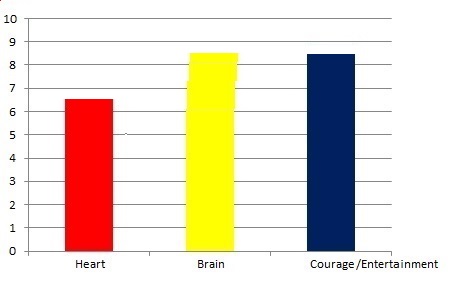 Red Rocket 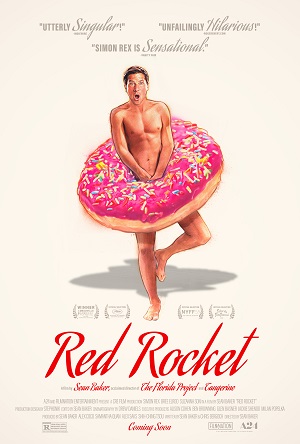 Mikey Saber (Simon Rex), an ex-porn star, moves back to his small hometown in Texas after living in Los Angeles for a while. His wife, Lexi (Bree Elrod) reluctantly agrees to let him stay with her and her mother, Lil (Brenda Deiss), as long as he pays a portion of the rent. No one wants to hire him in town when he applies for jobs because of his experience in the porn industry. He hopes to make some money through porn once again when he befriends and seduces a 17-year-old girl, Strawberry (Suzanna Son), who works at a donut shop, and tries to convince her to become a porn star. Red Rocket works much better as a character study than as a comedy. The screenplay by writer/director Sean Baker and co-writer Chris Bergoch does have some humor in it, especially at the beginning when Mikey feels like a fish-out-of-water in his hometown. For the most part, though, it's a tragic story about a man who has a lot of growing up to do and lacks emotional maturity while engaging in toxic relationships. One of those toxic relationships is with Strawberry who's just as emotionally immature as Mikey. They're both emotionally needy people. She's still a child, technically, and he behaves like a child. Their relationship is doomed to fail from the get-go, but Mikey remains too immature to even realize that. Unsurprisingly, Strawberry lacks a father figure in her life which explains why she's into older guys like Mikey. The screenwriters should be commended for being unafraid to make Mikey and Strawberry unlikable characters. They're deeply flawed which makes them all the more human, but they're far from good role models. No one on screen is a good role model, and Red Rocket doesn't offer easy solutions to their problems either. A tragic incident involving Mikey and his friend, Lonnie (Ethan Darbone), makes them even more unlikable. The same can be said when Mikey confronts Strawberry's boyfriend to tell her that she's dumping him. Mikey clearly lacks empathy, compassion and boundaries. He's a controlling, lying, selfish narcissist. The filmmakers don't judge him, though, but let you, the audience, judge him if you wish to or to just experience him. Despite his many vices, he's like a whirlwind of energy and, like when seeing an accident, it's hard to look away whenever he's onscreen. There are also a few subtle and not-so-subtle political commentaries, i.e. a sign that reads "Make America Great Again." Mikey is poor, amoral, childish and delusional. Does that make him a microcosm of Trump's America? The answer to that question is also left for the audience to decide on their own. The ending, which won't be spoiled here, leaves room for interpretation, although it has shades of the ending of Sean Baker's The Florida Project. Simon Rex gives a lively, charismatic and invigorating performances as Mikey Saber. He truly sinks his teeth into the role and adds emotional depth occasionally. The character of Mikey feels like nails on a chalkboard sometimes, but Simon Rex's performance makes Mikey a slightly less grating character. Mikey is still over-the-top in some ways, yet he remains grounded for the most part. Bree Elrod and Brenda Deiss anchor the film with understated natural performances which counterbalance the high-energy of Mikey. There are some unflinching sex scenes that leave little to the imagination and give the film its hard R-rating, but this movie isn't fundamentally about sex or porn. Does Red Rocket need to be over 2 hours? No, it could've used tighter editing to make it a lean 90-minutes movie, and does lose a little dramatic momentum toward the end, but it's still entertaining for the most part. At a running time of 2 hours and 8 minutes, Red Rocket is audacious, provocative and surprisingly heartfelt with a wildly entertaining, charismatic performance by Simon Rex. It also boasts a pretty great soundtrack. 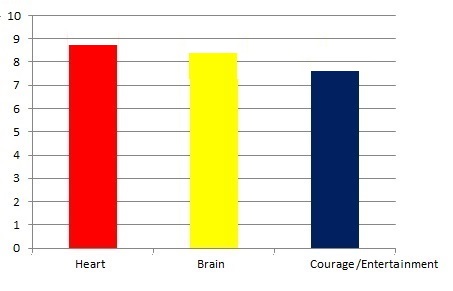 The Souvenir: Part II 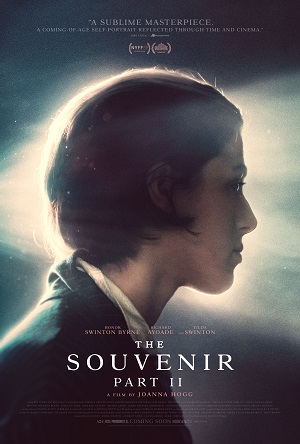 Julie (Honor Swinton Byrne), a film student, is still grieving from the suicide of her boyfriend, Anthony (Tom Burke). She decides to write and direct a graduate film about her relationship with him. Her mother, Rosalind (Tilda Swinton), agrees to cut her a check to finance her film. The production doesn't go as smoothly as Julie expected while she seeks advice from her friend, Patrick (Richard Ayoade), and sees a therapist (Gail Ferguson) to deal with her grief. The Souvenir: Part II is a vast improvement on The Souvenir: Part I. The screenplay by writer/director Joanna Hogg has more wit, humor and warmth while becoming more and more thought-provoking. Julie's student film mirrors her life, so when the actors question the relationship between the couple, they're essentially questioning Julie's relationship and compelling her to ask those very same questions to herself about their relationship. Hogg does a great job of providing a window into the heart, mind and soul of Julie. You don't have to be a filmmaker to understand Julie's struggles with grief or what it feels like for her to ask her wealthy, cold mother for money to fund her film. The Souvenir: Part II becomes most interesting as the lines between reality and fiction start blurring, much like in the recent film Bergman's Island which is also a cerebral film about filmmaking, relationships and the parallels between life and art. Some of the humor, though, will be funnier and most appreciated to those who have experience in filmmaking because there are some inside jokes about filmmaking. Fortunately, Hogg keeps the film feeling profoundly human and moving. Julie goes through an emotional journey which the audience gets to observe intimately like voyeurs peeking behind a curtain. Joanna Hogg clearly grasps not only filmmaking and what filmmakers go through, but, most importantly, human nature. Julie's emotional journey wouldn't feel so true-to-life if it weren't for Honor Swinton Byrne's radiant and moving performance. She's charismatic and captivating to watch from start to finish. She should be commended for showing emotional vulnerability in front of the camera which means that she's both brave and emotionally generous. Just like in The Souvenir: Part I, the production design looks exquisite and stylish. The pacing moves unhurriedly and the editing feels smooth. There's also a wonderful soundtrack and terrific cinematography. Hogg makes use of different film grains too which adds more richness. The visual style becomes part of the film's substance which is not an easy feat to achieve. At a running of 1 hour and 46 minutes, The Souvenir: Part II is wise, heartfelt, witty and profoundly human. It would pair well in a double feature with Bergman's Island. 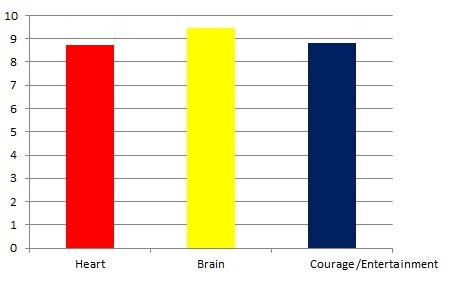 Titane 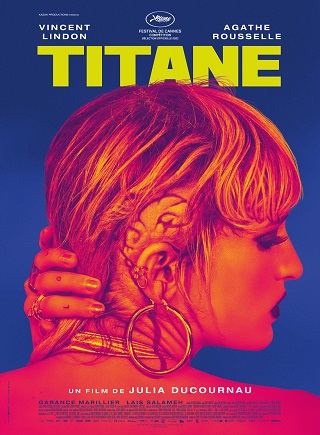 After surviving a car accident as a child that kills her father and leaves her with a titanium plate in her head, 32-year-old Alexia (Agathe Rousselle) works as an erotic dancer who dances on top of cars at car shows. She has a sexual fetish toward cars. When she becomes a serial killer, she shaves her head and disguises herself as a missing 19-year old boy named Adrien. Vincent (Vincent Lindon) believes that she's his son. Titane has shades of Cronenberg horror while aiming for shock value, but it runs out of steam once Alexia/Adrien meets Vincent. The screenplay by writer/director Julia Ducournau includes a brief foreshadow at the very beginning when Alexia kisses a car when she was a child. She then flashes forward two decades to the adult version of Alexia who now has clearly been traumatized by the car crash and losing her father to it. By skipping Alexia's teenage years and not showing how she struggled with the trauma that led to her current toxic behavior, Ducournau squanders an opportunity to humanize Alexia. It's as though she were in a hurry to get to the meat of the story when the real meat is the twisted mind of Alexia. Imagine if Kubrick had included Jack Torrance's full blown madness and rage early on in The Shining instead of allowing him to gradually descend into that madness like he does. In Titane, Alexia has already fully descended into madness within the first 10 minutes. She's treated merely as a plot device, and the screenplay doesn't allow for much room into her heart, mind and soul. The combo of horror, sci-fi, drama and dark comedy doesn't quite gell into a whole that has something interesting to say beyond its shock value. Its messages and metaphors related to gender identity are obvious, too simplistic and shallow. Being John Malkovich has more to say about gender and sexual identity while making the most out of its bold, unconventional concept. Even Cronenberg's The Fly and Quentin Dupieux's films, Rubber, Mandibles and Keep an Eye Out, take their refreshing concepts in more interesting and surprisingly profound directions. Unfortunately, Ducournau doesn't take her bold concept anywhere that's surprising or intellectually and emotionally compelling enough. Agathe Rousselle gives a decent performance as Alexia/Adrien, but the screenplay doesn't provide her with enough of a window into her inner life. Every fictional character and human being in the real world has a life front stage and backstage with a curtain in between much like in theater. A truly great film pulls the character's curtain enough so that the audience can peer into the character's inner life "backstage" so-to-speak. That's what makes them human and relatable while sometimes inspiring the audience to pull their own curtains back and look at their own innate thoughts and feelings through introspection. Titane doesn't succeed in accomplishing that because Alexia/Adrien's curtain to his/her "backstage" remains closed throughout most of the film. He/she start out as a stranger to the audience and remains a stranger until the very end. What's left is some body horror with grotesque visuals that add some visual style, but without much substance. Sometimes substance can become a part of a film's style, but not in the case of Titane. At a running time of 1 hour and 48 minutes, Titane is bold and visually stylish, but vapid and unsurprising while suffering from style over substance. It's ultimately less than the sum of its parts. 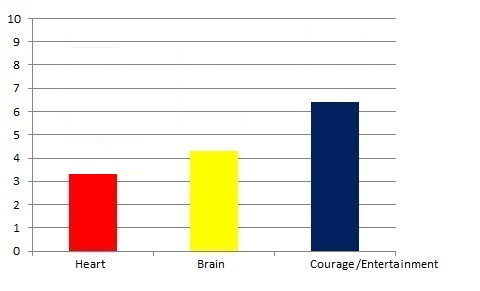 The Tsugua Diaries  Crista (Crista Alfaiate), Carloto (Carloto Cotta) and João (João Nunes Monteiro) spend their summer shooting a film on a farm in Portugal. They also build a greenhouse for butterflies together. The Tsugua Diaries is the kind of movie that you could easily say "nothing happens" in terms of plot, and you'd be mostly correct. There's nothing inherently wrong with a minimalist plot because it's more important for a film to capture the feeling contained within a plot. There are plenty of plot-heavy films made for millions of dollars that result in little to no emotions or end up making the audience feel exhausted. The most action Tsugua Diaries occurs when someone (spoiler alert!) kills a large mosquito on the wall. Perhaps the mosquitos are the only real villains in the film. The screenplay by writers/directors Maureen Fazendeiro and Miguel Gomes along with co-writer Mariana Ricardo opts for a rather laid-back approach with shades of Richard Linklater, Eric Rohmer and Carlos Reygadas. However, they unnecessarily break convention by telling the story in reverse chronological order. In Memento, that works because the main character suffers from memory loss. In this film, it feels more like a gimmick without much purpose other than to be unconventional. The filmmakers try to walk a fine line between documentary and fiction, but the non-linear structure diminishes the film's sense of realism and distracts from it concurrently as though the film weren't proud or secure of its minimalist plot. Also, the screenwriters spoon-feed the audience and don't trust their intelligence enough because they reveal the number of days to the audience. Despite the word "diary" in the title, there's very little that feels emotionally revealing and engrossing in The Tsugua Diaries. The strongest aspect of The Tsugua Diaries is its cinematography which makes the most of the natural landscape and the interiors. The lighting design and even the sound design along with the music score are superb and add plenty of style to the film. Unfortunately, visual and aurals style can only go so far when it comes to adding substance to the film. Carlos Reygadas' films do a better job of making nature look and feel poetic and breathtaking without words, i.e Silent Light. There are some nice touches that show the passage of time, i.e. a rotten fruit that becomes less and less rotten as the film progresses. That's another reason why labeling each day for the audience isn't necessary. Why not let the audience figure out the passage of time just with the visuals of the reverse-rotting fruit? At a running time of 1 hour and 43 minutes, which feels more like 2 hours, The Tsugua Diaries is well-shot, but meandering and often dull with a distracting non-linear structure.
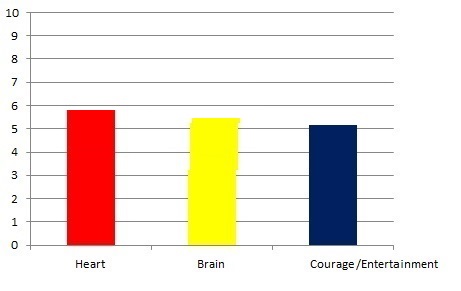 Vortex  A husband (Dario Argento) lives his wife (Françoise Lebrun) in a dilapidated apartment. He suffers from a heart condition while she battles dementia. Their son, Stéphane (Alex Lutz), a drug addict, visits them to try to convince them to go to an assisted living facility. As Hitchcock once wisely observed, some movies are a slice-of-cake while others a slice-of-life. Vortex is very much a slice-of-life albeit one that's toward a tragic stage of a husband and wife's life. The plot, if you want to even call it that, has very little going on on the surface, but a lot goes on beneath the surface and in the husband and wife's backstories. Writer/director Gaspar Noé has been known for making intense movies with explicit sex and violence like Irreversible, Love and Enter the Void. With Vortex, he goes for explicit, unflinching emotional grit without any sugar-coating. He depicts old age and dementia in a way that's honest even though it's difficult to watch. If you're having a hard time watching people suffering, that means you have a heart, mind, soul and, above all, a conscience. There's very little enjoyable about Vortex, but that's part of the point. Life isn't always easy. We all grow old. Noé doesn't ask you to judge the husband and wife or their son for that matter. He's not asking you to pity them, either. Instead, he's asking you to see them as flawed human beings who are going through a tough time while dealing with a lot of emotional baggage. The way that Noé incorporates their backstory for exposition feels very organic as does that dialogue. There's very little levity, though, but to be fair, such a harrowing subject matter is hard to balance with comic relief. The film remains focused on the husband, wife and their son without flashbacks. Concurrently, you, as an audience member represent the fourth character because you're observing these people like a voyeur. That means that how you view them depends on your own life experiences, your emotional maturity, and your own projections based on that. Many scenes feel emotionally resonating, but there's one particularly powerful one when Stéphane sits down with his mother and father to try to have a heart-to-heart. If you open up your heart, mind and soul to Vortex, it will end up a very emotionally and spiritually enriching experience. Death, after all, is a part of life, so it's a testament to Gasper Noé courage, emotional generosity and emotional maturity that he looks at both life and death head-on and honestly. Dario Argento, Françoise Lebrun and Alex Lutz each give nuanced, heartfelt and raw performances that ground Vortex even further in authenticity. They breathe life into their roles with the help of the screenplay that provides plenty of opportunities for them to be emotionally naked in front of the camera. That makes their performances brave because emotonal nakedness is far more intimate and revealing than physical nakedness. It's hard to discuss Vortex without mentioning Gaspar Noé's use of the split screen to tell the story. The split screen doesn't occur right away, but gradually in the beginning after he introduces the husband, wife and son to the audience. The stylish opening credits are also worth mentioning. Noé certainly appears to like creative opening credits---see Enter the Void for the best example of that. Fortunately, the film's visual style doesn't get in the way of its substance nor does it become distracting. It actually becomes somewhat poetic, although it does leave it up to the audience to interpret what it means. At a running time of 2 hours and 20 minutes, which actually doesn't feel as long, Vortex is unflinching, genuinely heartfelt and profoundly human. It's just as powerful, emotionally mature and haunting as Mass. 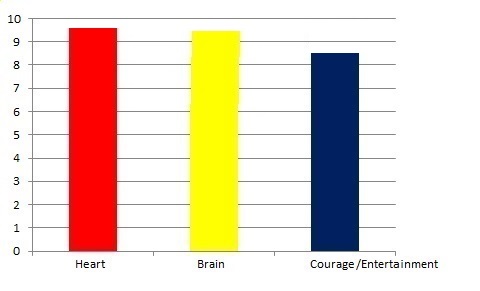 Wheel of Fortune and Fantasy 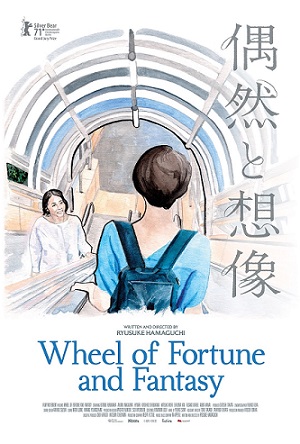 In the first chapter, Tsugumi (Hyunri) sits in the back of a cab with her friend, Meiko (Kotone Furukawa), and reveals to her that she met a man, Kazuaki (Ayumu Nakajima), whom she hit it off with. She doesn't know, though, that Meiko happens to be his ex-girlfriend. In the second chapter, Nao (Katsuki Mori), a married woman, helps her friend with benefits, Nao (Katsuki Mori) seeks revenge against his professor, Professor Segawa (Kiyohiko Shibukawa), by trying to seduce him. In the third chapter, set in the near future, Moka (Fusako Urabe) attents her high school reunion hoping to meet the very first love of her life. When she crosses paths with Nana (Aoba Kawai) at a train station, Nana mistakes her for someone else while Moka mistakenly believes that she's her long-lost love. Upon learning about the mix-up, they agree to try roleplaying the women that they confused each other for. Writer/director Ryûsuke Hamaguchi weaves three thematically connected stories together in three chapters titled, "Magic (or Something Less Assuring)", "Door Wide Open", and "Once Again." Each of the stories deals with love, friendship, fantasy and fate in different ways. The first chapter, "Magic (or Something Less Assuring)", is the most engaging among the three, but all of them have at least something to offer because they have something to say about relationships and human nature. Hamaguchi has a knack for writing organic dialogue that sounds like the way human beings talk, and he avoids the pitfalls of cheesiness and melodrama. The first chapter works the best because it says a lot about fate and relationships while avoiding those pitfalls. "Door Wide Open" has some suspense and intrigue, but it feels more contrived than the other two chapters. It's also the darkest chapter of the three, although it's not too dark. It could've easily been turned into a feature length psychological thriller and perhaps would've worked better that way because as a short, it bites off more than it could chew. Hamaguchi keeps everything light and gentle--even the humor isn't laugh-out-loud funny per se. The final chapter, "Once Again," is the most imaginative one that's also quite moving with an ending that's quietly powerful, honest and understated. The performances in Wheel of Fortune and Fantasy feel natural and emotional depth which helps to ground the film in realism even further. No one over-acts nor under-acts. Hamaguchi trusts the audience's patience although not as much as he did in the tedious 5-hour film Happy Hour. The pacing in this film is less slow than in Happy Hour and it doesn't feel repetitive nor does it test the audience's patience as much. Another one of the filmmaker's strengths besides that he knows how to write dialogue that's organic and lacks stiltedness is that he writes good roles for women and explores female friendships on screen in a way that feels authentic. His films aren't as profound and cerebral as Eric Rohmer's films, but they come close. It would be interesting to pair Wheel of Fortune and Fantasy with another film that also deals with the themes of relationships and fantasy vs reality, Bergman Island, directed by Mia Hansen-Løve. Both Hamaguchi and Mia Hansen-Løve have similar sensibilities when it comes to how they treat the characters and the audience as intelligent human beings. At a running time of about 2 hours, Wheel of Fortune and Fantasy is a mildly engaging and uneven, yet quietly moving and understated anthology.
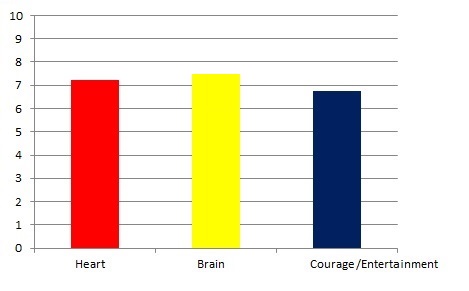 ______________________________________________________ |
The NYC Movie Guru
themovieguru101@yahoo.com
Privacy Policy